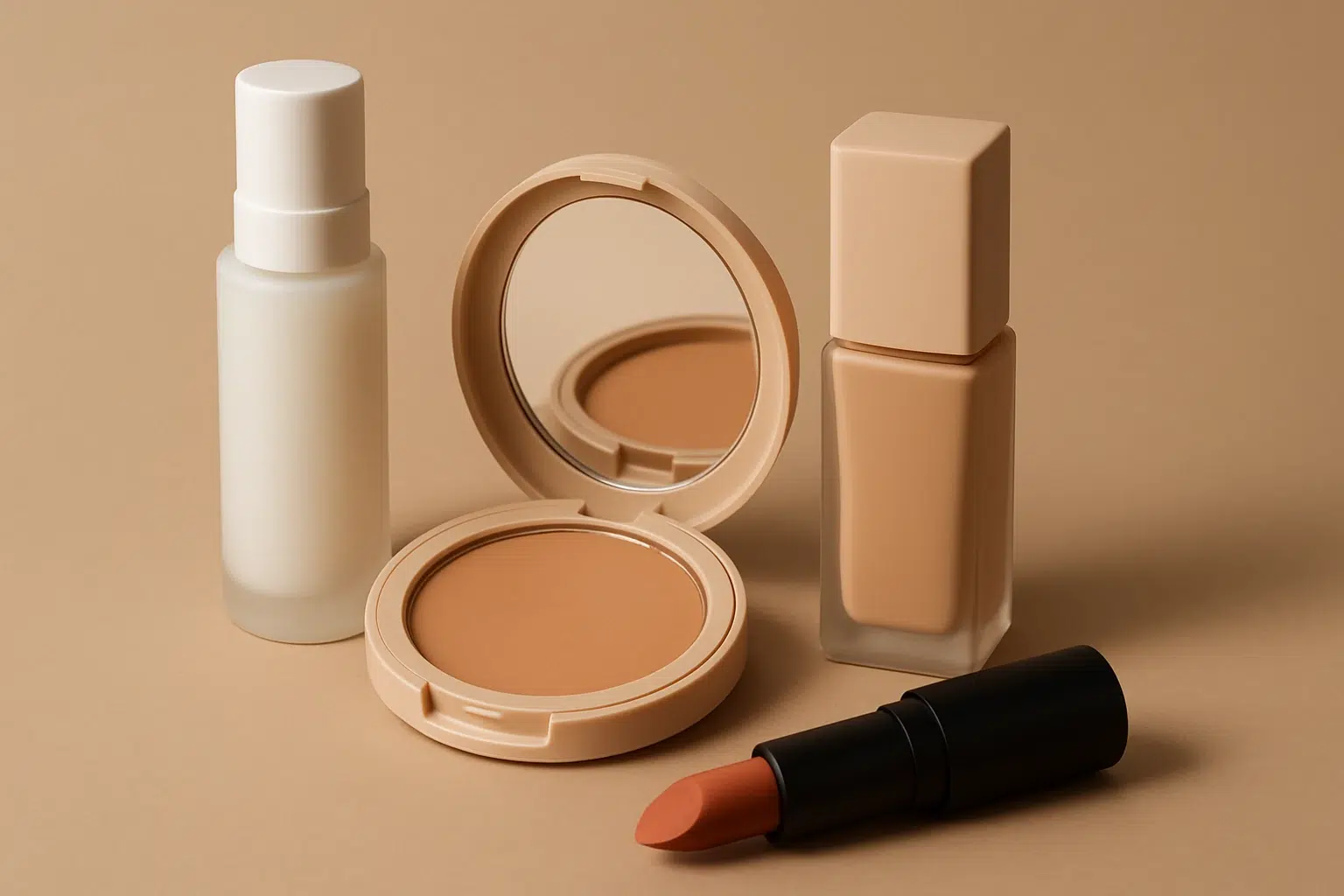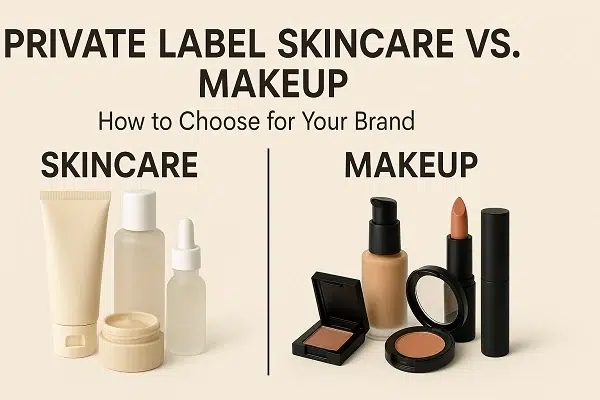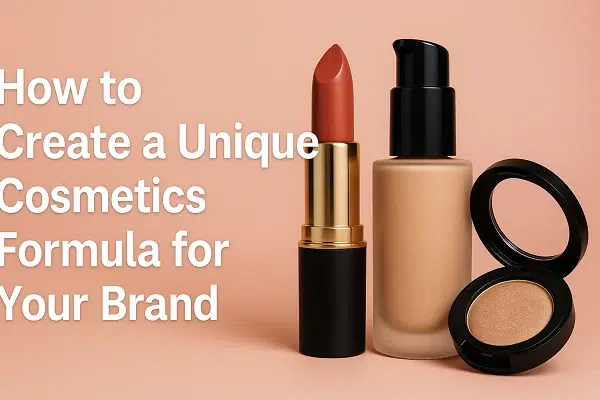If you’re really determined to get into private label cosmetics, it’s important that you familiarize yourself with a couple of things. So in the following post, we’ll look at the latest trends, challenges and opportunities that exist in this sector.
Table of Contents
Looking to start a business in the cosmetics industry? Well, one of the easiest ways to dip your toes in this industry is through private label cosmetics.
Put simply; private labeling entails selling premium-quality cosmetic products made by a third-party company but sold under your own brand.
As a retailer, you’ll have full control over the formulations, packaging, labeling, branding and pricing of the products. However, it’s the manufacturer who will handle these operations, making things a tad easier on your part.
Trends in the Private Label Cosmetics Industry
Here are some of the latest trends in the private label cosmetics industry:
Increased demand for sustainable and eco-friendly products
One trend you’re sure to notice in 2023 is the rising demand for organic and eco-friendly cosmetic products.
Nowadays, customers perceive organic cosmetics as being safer not only for themselves but also the environment.
In line with this, cosmetic firms are turning to natural ingredients in place of the synthetic ones. So if you want your cosmetic company to stand out from the crowd, switching to more sustainable cruelty free products might be the ultimate answer!
Growing popularity of niche and specialty cosmetics
If you’re planning to venture into private label cosmetics, one thing you should know is that niche or specialty products are taking center stage. As such, this is one trend you should consider exploring.
To achieve this, you’ll want to partner with an experienced manufacturing firm. This way, you can trust the manufacturer to incorporate unique aspects into the products they create.
If the specialty products are glamorous enough, you won’t even have to put a lot of effort into advertising. The traits of the product will attract the ideal customer, who won’t mind paying a premium price.
Advancements in technology and digital marketing
The cosmetic industry is quite big, which means you have access to a lot of potential customers. Unfortunately, this also means that there are dozens of private label brands to compete against.
One trend that can give you an edge is having a solid digital marketing strategy. Research the market and use the data you find to learn the needs of your ideal customer.
Next, leverage social media tools to boost awareness and traffic to your private label cosmetics business. With 99% of your competitors already using social media, this is one trend you’ll not want to skip.
Increased focus on personalization and customization
The rising interest in personalization is among the biggest beauty trends. Customers no longer settle for what’s available.
Rather, they prefer to buy hair styles, makeup and skin care products that work specifically for them. Thanks to this, you don’t have to be Megan Fox or any other celebrity to find cosmetics tailored for your skin tone or body. Just research private label cosmetic businesses online and you’ll likely find them selling personalized products.
Challenges facing the Private Label Cosmetics Industry
Being in this industry gives you an opportunity to come up with creative solutions to gain a considerable share of the industry. However, you should also expect to face some hardships along the way. Here’s a list of challenges that you’re likely to encounter:
Intense competition and saturation in the market
The industry of private label cosmetics is extremely competitive.
Whether you’re offering nail polish, skincare products, hair treatments or a broad range of beauty items, you’re bound to encounter stiff competition.
You’ll come across dozens of national brands and other private label companies creating fairly-similar cosmetic products. This means that you have to constantly think of new ways to set your products apart.
One thing that can help you overcome competition is collaborating with the right manufacturer from the get-go. The best companies are those that not only assist with contract manufacturing but also help you develop your brand.
Pinnacle Cosmetics private label company is a good case in point. Once you contact them, they’ll explain how you can start a makeup line from scratch. You can then discuss the specific products you’re interested in and how to get them customized.
Rising costs of production and materials
Starting a cosmetics business in the private label category is no mean feat. You’re likely to spend more upfront than you would if you were making the products in house. The reason for this is that most manufacturing firms have a minimum order requirement.
Essentially, they can only manufacture customized products if you order the specified number of units. And with global inflation rates at an all-time high, the cost of contract manufacturing might turn out to be pretty high.
To add to this, there are extra costs that you’ll incur in design & customization, advertising and more. If you’re not financially prepared, you may find yourself in a crisis before your business even gets off the ground.
Stringent regulations and standards
Whether you’re starting your private label cosmetic brand in Asia, Europe or other continents, there are certain rules you have to abide by.
If you’re in the United States, you might be a bit lucky considering the FDA doesn’t need to approve or sample cosmetic products before they’re released for sale.
However, this organization has the right to inspect cosmetic manufacturing plants regularly. So if you partnered up with a manufacturing company that likes to cut corners, you may still find yourself in trouble.
The FDA also has stringent rules on how to label packaging. So when deciding how to brand your products, ensure that you don’t use misleading or false information on the packaging.
Changing consumer preferences and expectations
Consumer preferences for beauty products change almost on a daily basis.
For instance, glitter eye makeup and middle parts styles may have been the biggest beauty trends towards the end of last year. But they’re already falling out of favor. Now, people prefer more subtle shimmers and side parts as seen with popular celebrities like Selena Gomez and Kim Kardashian.
Similarly, a skin care product that made you look glam at one point might be considered too old-fashioned tomorrow.
As a retailer in the private label industry, you might find it difficult to keep up with the constantly-changing trends.
The fact that you’re working with a third-party manufacturing firm makes it harder to implement changes on the fly.
Even if your manufacturer manages to implement changes rapidly, you might not have enough time to sample the products before releasing them on the market. Here are some tips to assist you in coping with the ever-changing demands, consider:
- Leveraging data analytics – if you have a solid marketing campaign, then there’s a good chance that you already have some data regarding your customers.
Analyzing this data can give you an insight into future customer behavior. For instance, if the demand for your private label makeup products has been decreasing for several months, you might want to ditch them and venture into a new beauty line.
- Building an agile team – the success of any private label brand relies heavily on all the players involved. Even though the manufacturer will do the brunt of the work, other parties have to play their roles efficiently as well.
Let’s say you’re in the makeup industry. This means that your customer reps should be able to communicate clients’ needs efficiently. Similarly, the makeup artist that you have on standby should be familiar with the latest trends in this sector.
Opportunities in the Private Label Cosmetics Industry
Expansion into new and emerging markets
The global beauty industry has evolved significantly over the past few years. People no longer have the stereotypical perception of beauty that’s plagued society for years.
Cosmetic and beauty companies are venturing into non-traditional markets, offering personalized products for different classes of consumers.
In a nutshell, the beauty industry has become pretty inclusive, coming up with products tailored for all individuals; regardless of their race, gender, religion, skin tone and more. Taking this into account, there’s no better time to expand your private label brand into new territories.
For instance, if you’re used to selling chic hair wigs of specific shades, try selling other hair colors that suit different skin tones.
You’ll be surprised by the number of customers your business attracts. Similarly, if you were only selling wigs of a particular texture, expanding your line to other textures can increase traffic to your brand. After all, there’s no one size fits all when it comes to beauty.
Diversification of product offerings
You may have started your private label brand in the skin care niche. But, that doesn’t stop you from venturing into other sectors.
If you notice a higher demand for products related to nails, then you should try out that niche as well. You might realize higher returns from your nails line of products than your skin care line. Furthermore, selling the latest products helps your brand stay fresh in the minds of your clientele.
The only advice is that you shouldn’t dive into these sectors before doing ample research. This brings us to our next point.
Investment in research and development
One opportunity that retail businesses miss out on is investing in research and development. Little do they know that they can learn new ways to set their businesses apart.
Before you start looking for a manufacturer, begin by doing some due diligence. This will help you figure out the particular niche that thrives in your region.
For example, are customers more interested in hair and makeup products or skin care treatments? Do they prefer to do their own nails at home or would they rather go to a nail salon for a manicure? Figuring out answers to these questions helps you identify the products to focus on.
If you’ve already chosen a niche, then researching can help you figure out the latest trends in your sector. For instance, those in the brows and lashes business know that bleached eyebrows are slowly losing fame.
Even though celebrities like Doja Cat and Bella Hadid bleached their brows last year, the trend has shifted in favor of fluffy eye brows. With due diligence, you’ll be able to keep abreast with these changes. This way, you can request your manufacturer to create trending items that will sell out fast on your private label business.
As a bonus, you’ll also learn more about your competitors. Specifically, your fact-finding mission may reveal aspects that your rivals are lacking, and ones that can make your business stand out.
Collaboration with influencers and bloggers
One of the biggest challenges for private label cosmetic businesses is brand recognition. If you’re just starting out, you may find it a bit difficult to lure clients who are already familiar with household names.
This is where influencer marketing comes in handy. Collaborating with an influencer in your niche makes it easier for customers to trust you.
According to one research study, up to 67% of beauty shoppers claimed that they turn to influencers to learn about new products. Another 49% make their purchase decisions based on influencers’ suggestions.
To get the most from your collaboration, be sure to pick someone renowned in your specific niche. Let’s say that you want to create and market a new skincare treatment for acne. In that case, it’s best to partner up with an influencer who’s passionate about skin care.
Similarly, if you’re looking to introduce new hair texture or shades, you should work with an influencer who’s already interested in hair care.
Another tip to help you get the most out of your collaboration is to work with multiple micro-influencers.
Let’s say you’re just starting out as a small-scale nail artist. Given all the money you’ll spend contracting a manufacturing firm and setting up your manicure services, you probably won’t be able to afford a mega-influencer charging top-tier fees.
So instead, consider working with micro-influencers who are passionate about nails. They may have smaller audiences, but they’ll still offer better reach than advertising on your own. This advice applies to anyone starting a private label cosmetics company; whether you’re a makeup artist, skincare specialist or other.







